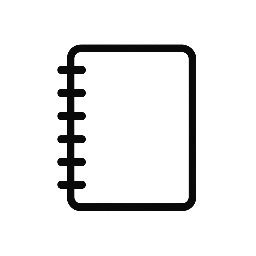
Title: Copyrighted Books Deemed Fair Use for AI Training: A Progressive Judicial Leap
1. News Summary:
In an unprecedented ruling that has far-reaching implications, a federal court in the United States has ruled that copyrighted materials, specifically books, qualify for ‘fair use’ as fodder for artificial intelligence (AI) training. This landmark decision came as a significant development in the intertwining world of copyright law, artificial intelligence, and machine learning.
This groundbreaking verdict was delivered in a lawsuit pitched by publishers against an OpenAI-backed firm, BookFusion, that uses copyrighted books to train language learning models. The publishers alleged that the firm had infringed their copyrighted material without consent. However, the court struck down these allegations, maintaining that the company’s usage of these copyrighted books fell under the ambit of ‘fair use.’
The court’s ruling hinged on the argument that BookFusion didn’t republish these books for the readers, rather processed the digital copies to form training sets for neural networks. This meant the usage didn’t fulfill any of the conventional roles played by books – that is, delivering information, insights, or aesthetic enjoyment to the readers; thereby, qualifying it as ‘fair use.’
The court also pointed out that the copyrights were not harmed since the AI doesn’t disclose the content of the training data to users. Furthermore, it highlighted that promoting advancement of knowledge and learning was a core mission of copyright law and allowing copyrighted books to be used for AI training would service that mission.
2. Background and Context:
This verdict has been reached amidst the huge debate on how AI and copyright law interact. The murkiness of the issue is amplified when we consider that AI, unlike humans, doesn’t comprehend content but merely uses it as raw data for pattern detection and prediction-building. The fear was that if copyrighted texts were not allowed for AI training, it would stifle the growth of this burgeoning technology. This decision offers clarity to some extent, but the ‘fair use’ element in copyright law is a legal minefield in itself, leaving room for more nuanced debates in the future.
The decision also arrives in a climate where the publishing industry is grappling with digital transformation alongside protecting the rights of authors and creative contributors. For these traditional companies, this ruling may seem intimidating as losing control over copyrighted content can feel like ceding ground in an already challenging industry paradigm.
3. Personal Opinion:
While this news poses certain challenges for rights holders, from a progressive and pragmatic standpoint, it significantly contributes to the evolution of both copyright law and AI. It essentially frames AI as a tool that facilitates knowledge and learning rather than being a copyright infringer.
Firstly, it’s important to underscore that training data is the backbone of machine learning. Without a rich, comprehensive data set, we essentially stifle AI’s potential. On this premise, the court’s decision indeed ensures the continual evolution of AI. We should see this as an opportunity to pivot towards an era of AI that is more ethical, accountable, and accurate.
However, adopting an assertive stance, I also believe that safeguards need to be in place, ensuring that this ‘fair use’ principle doesn’t get exploited, consequently cheapening intellectual property rights. As AI evolves, our policies, statutes, and practices ought to evolve as well. There needs to be a balance between enabling innovation and protecting author rights, and our legal structures should reflect that.
On a critical note, I feel this verdict is just scratching the surface of a huge can of copyright worms that AI is bound to open up. The future may see AI creating brand new content – music, literature, design, and beyond. Who would be the rightful owner of that? Does the AI hold a copyright, or is it the programmer who coded the AI, or the providers of training data? The conversation does not, and should not, stop at just using copyrighted material for AI training, but it’s a start nonetheless.
In conclusion, the ruling marks a genuine breakthrough in the dialogue between AI progression and copyrights. I advocate that we utilize this momentum to foster thoughtful discourse and policy development around AI and copyrights, ensuring a future where innovation and intellectual rights can harmoniously coexist.
